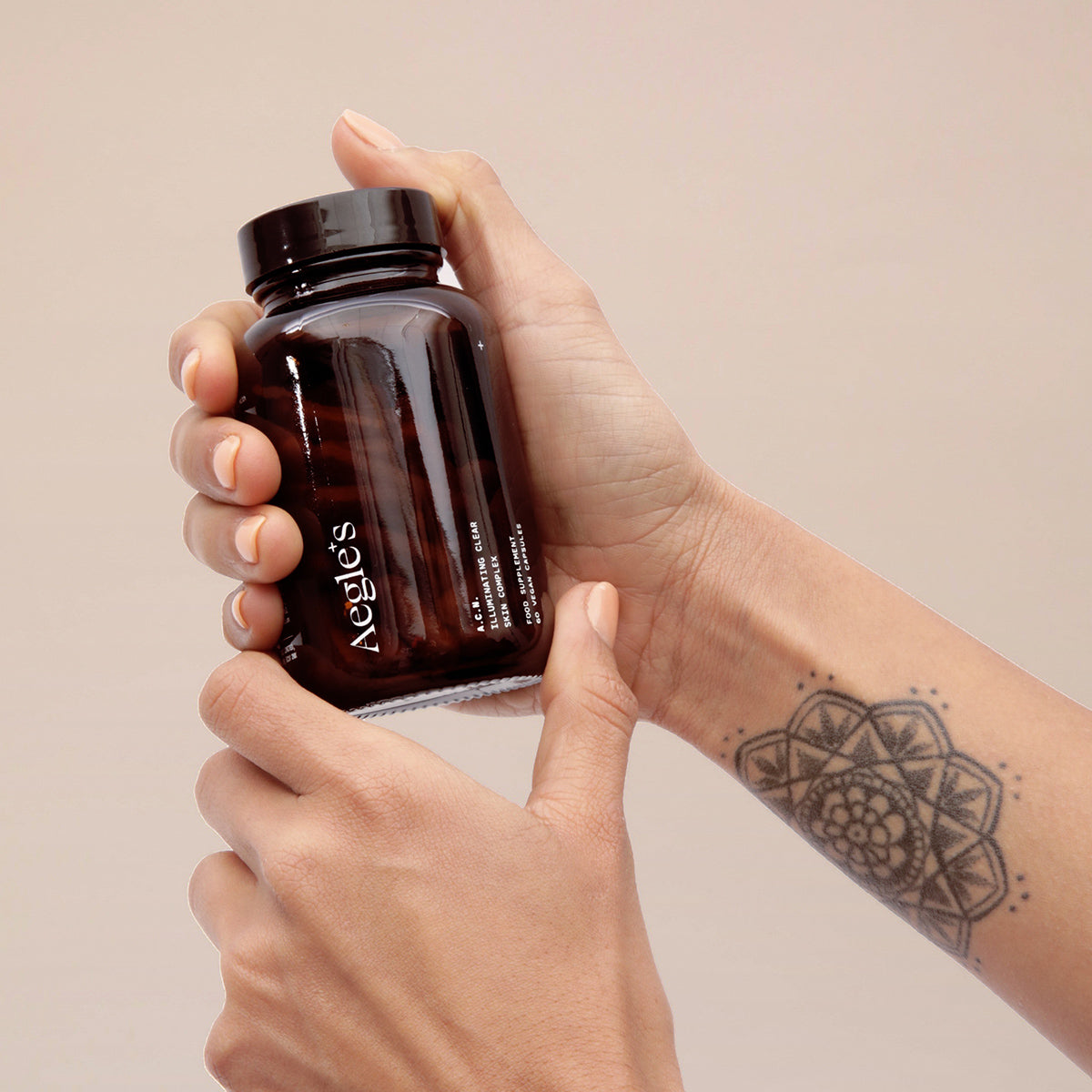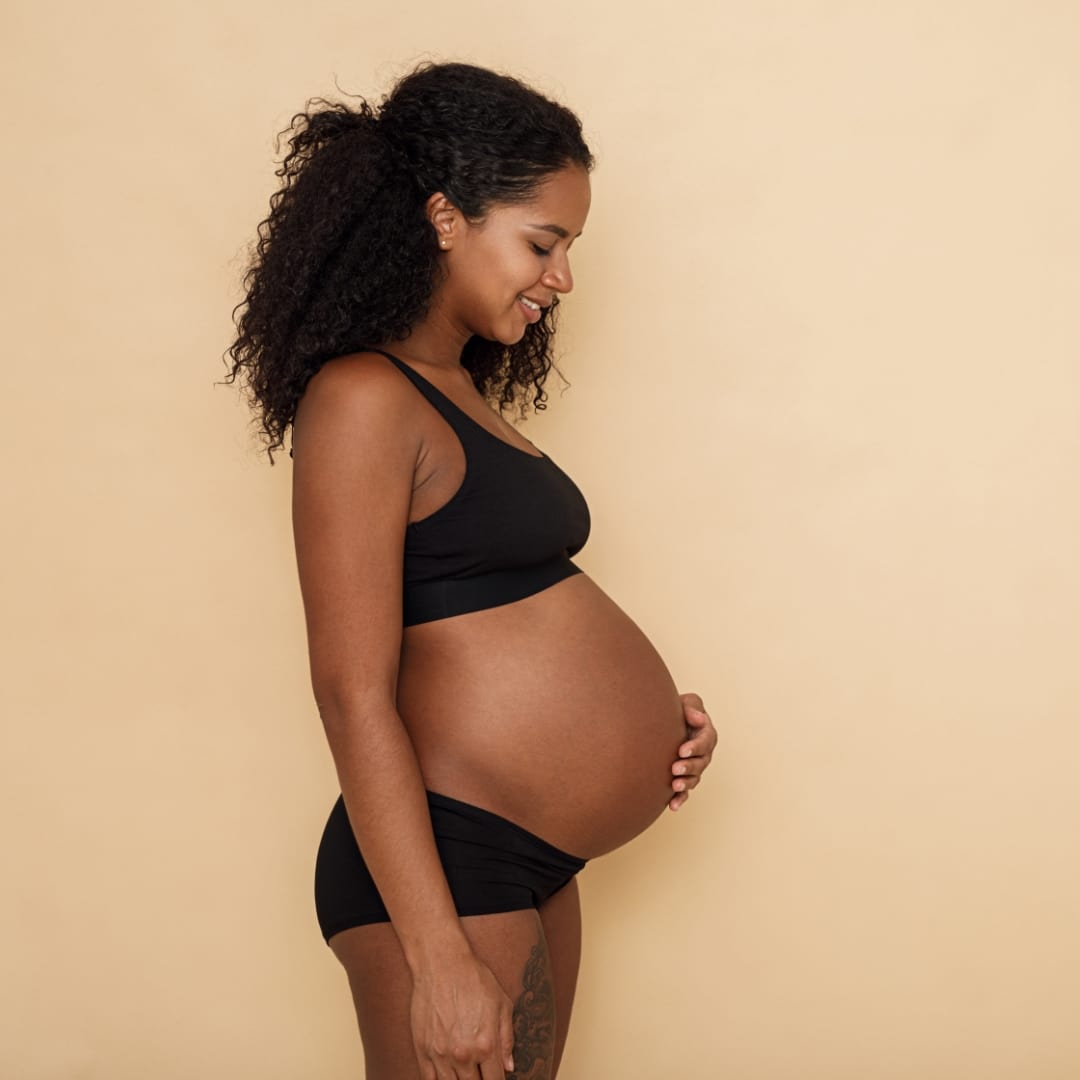It’s common for women with acne to experience a complete clearing of their skin during pregnancy and breastfeeding.
However, in some cases women may experience a worsening of their skin during pregnancy, or even breakouts for the first time.
This article will explore why some pregnant women experience breakouts, and how it can be treated while keeping the growing baby safe.
How can pregnancy cause acne?
Hormonal imbalances can cause an excess of sebum production, which clogs the skin and causes acne.
There are many hormones that are shifting and changing at various stages throughout pregnancy, and it is not known exactly which hormones are the definite cause of breakouts during this time.
In fact, it is likely that pregnant women who have breakouts at different stages of their pregnancy are getting them for different hormonal reasons.
For example, in the first trimester the elevation of 17-Hydroxyprogesterone (17-OHP) can lead to an increase in dihydrotestosterone (DHT), which is the most common cause of hormonal blemishes in women.
In later stages of pregnancy it’s possible that elevated progesterone levels are the cause, as progesterone can stimulate sebum production. However, progesterone also inhibits the conversion of testosterone into DHT, so it also helps to keep the skin clear.
Overall, it is more common for pregnant women to experience breakouts in the first trimester, which is indicative that yet again DHT is the leading cause of acne in women, pregnant or not.
Are acne-prone women more likely to experience acne during pregnancy?
Having acne-prone skin or a history of breakouts does not determine if a woman is going to experience acne during her pregnancy. However, women with irregular menstrual cycles before pregnancy, polycystic ovary syndrome (PCOS), hirsutism, and a high body weight are more likely to experience breakouts in pregnancy.
If a pregnant woman is going to experience breakouts during her pregnancy, it’s common for them to completely clear after the first trimester. Therefore pregnant women with mild acne may simply choose to wait for their second trimester to see if their skin will clear on its own.
Of course, there are situations where the acne continues further into the pregnancy, or where the acne in the first trimester is moderate to severe. In these cases understandably women will want to find solutions.
How to treat pregnancy acne
Pregnant women need to be careful with what they put into and onto their bodies to ensure there is no harm to the growing baby.
Therefore any skin treatment for pregnant women needs to be both safe and gentle.
The recommendation is to use a combination of diet with gentle skincare treatments. For diet, it is best to stick to foods and drinks that are low in sugars and simple carbohydrates. It is recommended to reduce or eliminate the following:
- Baked goods
- White flour products, such as white bread and pasta
- Processed sugars
- Sodas and sweet drinks
- Fruit juices and excessive fruits
- Cow's dairy
Understandably, implementing diet changes during pregnancy can be challenging if a woman has chronic nausea. However, there are healthy alternatives to the usual comfortable foods to eat with a nauseous stomach. For example, opt for whole grain or gluten-free crackers or bread, instead of the usual white flour varieties.
With sugar cravings opt for natural sugars such as honey or maple syrup, instead of reaching for sweets containing processed sugars.
Cow’s dairy is one of the most common causes of breakouts in women as it can raise Insulin-like growth factor 1 (IGF-1), which is a hormone that can raise DHT levels, so should be avoided.
Skincare during pregnancy
For skincare, avoid all strong chemicals and pharmaceuticals. Some good, simple and natural recommendations include:
- Cleanser: Hemp seed or jojoba oils
- Toner: Witch hazel
- Moisturiser: Shea butter
- Spot treatment: Lavender essential oil
It’s also possible to find safe and gentle skincare brands that are specifically for pregnant women.
Topical (cream or gel) retinoids must be avoided during pregnancy, as their use can cause birth defects.
The topical treatments benzoyl peroxide, erythromycin, clindamycin, Duac gel and azelaic acid are okay to use with instruction from a medical doctor or pharmacist, as some are only safe to use in limited amounts during pregnancy.
How to lower DHT levels during pregnancy
As we know, elevated levels of DHT is the most common cause of breakouts in women and is likely the cause for pregnant women too. However, as any form of medication, medicinal herb or supplement needs to be checked first by a medical health practitioner to ensure its safety for your baby, following a diet low in sugars and simple carbohydrates is the safest way to lower DHT levels in a natural and healthy way.
In conclusion
Pregnancy breakouts are most common in the first trimester and often clear up on their own into the second trimester. If your skin is affecting your well-being or breakouts continue into the second or third trimester, then it is best for the health and safety of the baby to try treating the condition first with diet changes and skincare.
If both diet changes and topical skincare don’t clear your skin, you can make an appointment with a certified natural therapist or doctor for advice on clearing your skin.
Start your journey to heal your skin now.

Start your journey to heal your skin now.
- Contains ingredients clinically proven to improve blemishes and skin radiance.
- Formulated by one of the world's leading skin practitioners.
- The only supplement that works for the three main causes of blemishes, blackheads and oily skin.
Discover more articles
- Choosing a selection results in a full page refresh.






